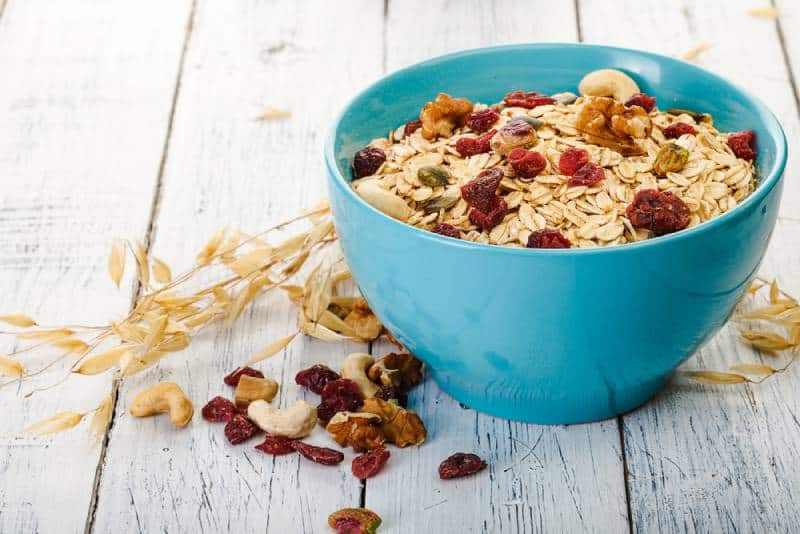If you are having trouble with your breast milk supply, one of the first questions on your mind will be: What are the foods that promote milk production?
From different herbs to fruit such as apricots, breastfeeding mothers can rely on dozens of foods that promote milk production and help them continue breastfeeding for as long as possible.
These foods are very important, and not just because they allow you to navigate some of the bumps in your breastfeeding journey. In fact, some contain nutrients that will benefit your health in the long-term.
For example, many of these foods that promote milk production can lower your blood pressure and reduce your risk of having a heart attack later on in life. Some are even said to lower your risk of having cancer.
Whether you choose to eat them on their own, add them to a delicious smoothie, or incorporate them into your favorite meals, these 13 foods will get your milk supply back on track in no time.
13 Foods To Boost Your Breast Milk Supply
If you’re wondering which foods will assist with your breast milk production, the following list will really help! Of course, make sure not to overdo it and only try a few at a time to avoid any potential side effects.
1. Fenugreek
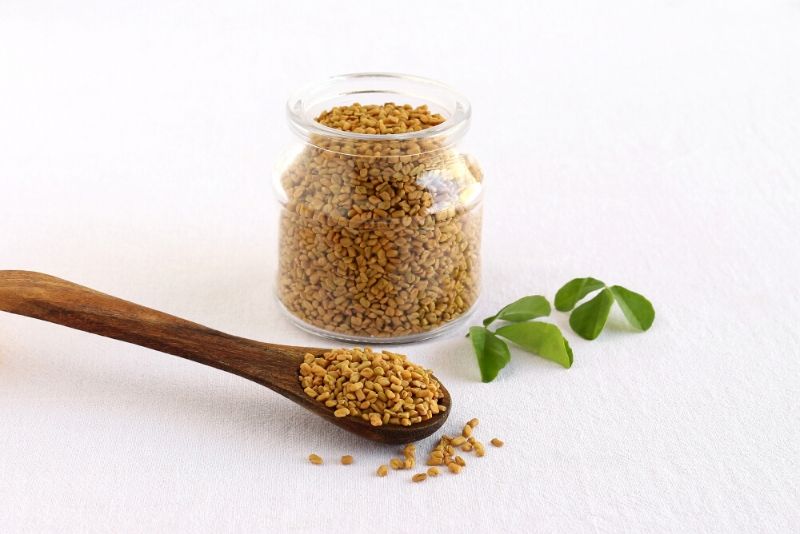
Fenugreek breastfeeding remedies are one of the most popular options among breastfeeding moms. This is a herb but it’s usually ingested as a capsule or tea. They are also available as fenugreek seeds.
The reason why fenugreek is among the top galactagogues is because studies have shown that it works, and quickly, too.
A 2018 study called “Effects of Fenugreek, Ginger, and Turmeric Supplementation on Human Milk Volume and Nutrient Content in Breastfeeding Mothers” found that fenugreek, in combination with other lactogenic ingredients, had a very positive effect on lactation.
After two weeks of taking the supplements, the volume of breast milk produced rose by 49 percent.
Although scientists have proven its effectiveness, the reason why fenugreek increases milk supply is still unknown. Some experts believe that the reason lies in the production of sweat, which this herb increases.
As similar glands produce milk, it could be that this is the hidden link between fenugreek and breast milk production.
There are some unusual side-effects of taking this herb to increase milk supply but none of them are dangerous. For example, some moms reported that they started smelling like maple syrup. Another common side-effect is diarrhea.
2. Whole grains
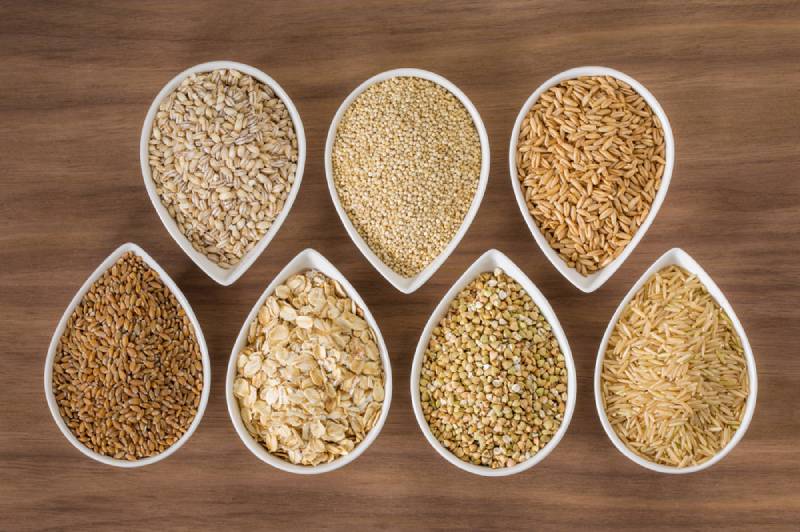
Whole grains are also commonly used in lactogenic foods precisely because they can be added to different recipes, such as lactation brownies.
They include oats, brown rice, whole-grain barley, quinoa, and many others. Quinoa is an excellent choice for babies who are ready for solid foods also.
For a new mom, these ingredients are not only beneficial for treating a low milk supply, but are important for her overall health, too.
Whole grains are incredibly nutritious and contain antioxidants, protein, fiber, magnesium, iron, and other important nutrients. When your diet contains enough whole grains, it lowers the risk of cancer and heart disease, so there’s no reason to hold off on incorporating them into your diet.
3. Chickpeas
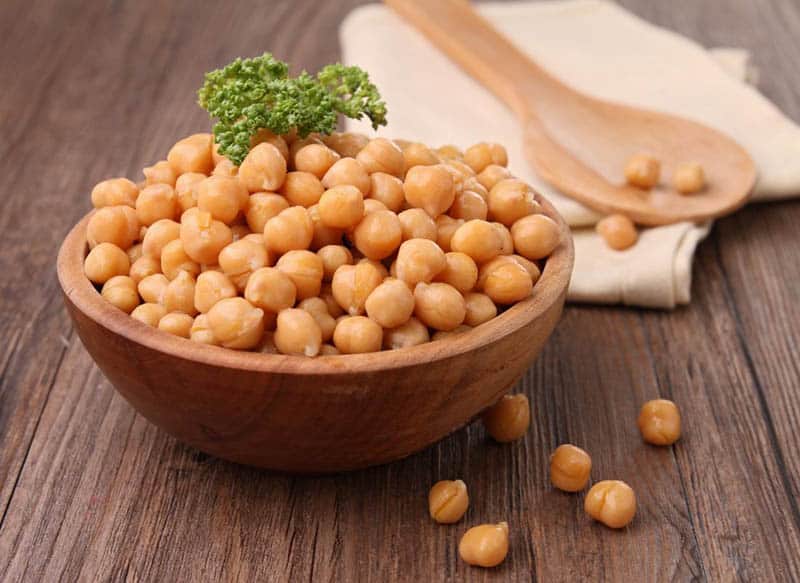
In addition to being one of the best foods that promote milk production, chickpeas are a great source of protein, too. As such, they are a perfect option for vegetarian or vegan moms that need alternative ways of including protein into their diet.
An easy way to eat chickpeas is to make hummus and enjoy it with crackers, bread, carrots, and other foods you can use for dipping. You can also roast them and make a delicious snack.
As a superfood and a galactogogue, chickpeas are loaded with important nutrients such as B vitamins, magnesium, calcium, phosphorus, fiber, and iron. Plus, they can help you lose weight because you will be full for a longer period of time and won’t need other snacks.
4. Dark leafy green vegetables

Kale, spinach, collard greens, and many more are all delicious leafy green veggies that can increase breast milk supply. The reason why they can boost milk supply lies in the phytoestrogens they contain which could increase how much milk you produce.
Such foods are also helpful for women who are getting closer to menopause and works wonders for your immune system.
Leafy greens are low-calorie foods that promote milk production, so they will be an excellent ally if you are trying to lose weight.
One of the easiest ways of eating leafy greens is by making a delicious smoothie. If you are an avid cook, then you will be able to find numerous recipes that will help you add leafy greens to your breastfeeding diet.
5. Papaya
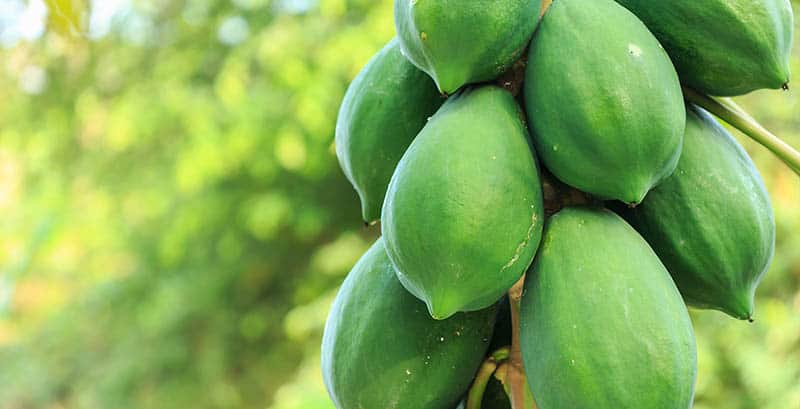
An unripe or green papaya is a traditionally Asian method of improving milk flow. Apart from eating it raw, you can throw it into a blender with other healthy ingredients and make a smoothie. This way, it will taste better as unripe papaya isn’t very tasty.
It’s believed to increase breast milk production because it improves the production of oxytocin, a key hormone for breastfeeding moms. Apart from that, papayas are healthy, too.
They contain vitamin C and vitamin A, for example, and are a great source of fiber which helps prevent constipation.
They also help your body absorb beta-carotene which is important for good skin and a healthy immune system.
If you have never had papaya before, watch out for any signs of an allergic reaction the first time you eat it.
6. Avocado

Avocado on toast or in a salad is an amazing food for nursing mothers. Apart from helping you produce enough milk for your little one, avo is full of healthy fats and omega-3 fatty acids.
Plus, they contain vitamin C which is great for your skin and your immune system, and fiber so that you have regular bowel movements.
7. Apricots
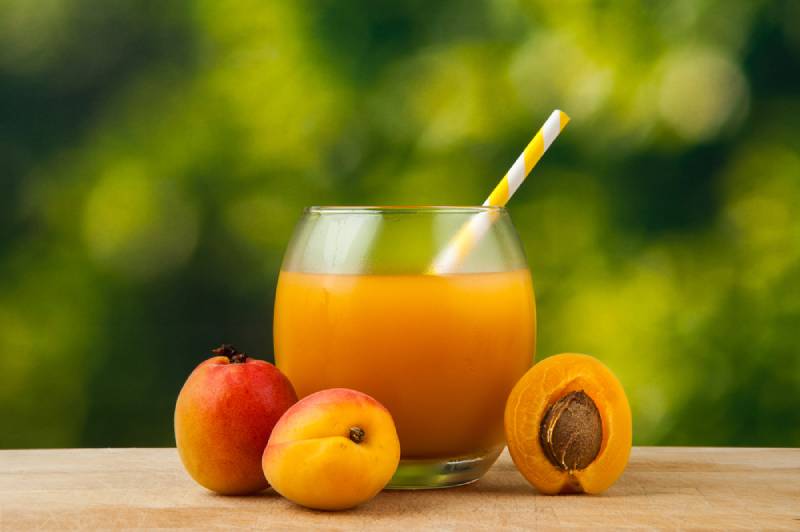
In addition to being absolutely delicious, apricots are a great food for lactating moms. When you ingest an apricot, it sends signals to your body to start producing the hormone prolactin which plays an important role in milk production.
Although apricots are available in cans, it’s best to avoid these as they are high in sugar. Either go for dried or fresh apricots and snack on them during the day as this is a great way to replace unhealthy snacks like candy or potato chips.
8. Sweet potatoes
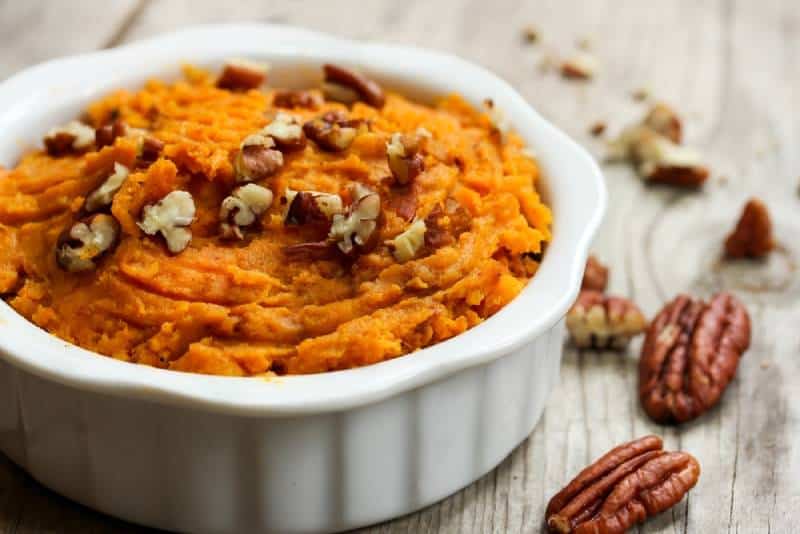
Are potatoes a regular part of your diet? How about switching it up and going for sweet potatoes instead? They are not only great for your health but also for the health and development of your baby.
This is due to the fact that they are high in vitamin A, which you will need plenty of while breastfeeding. This vitamin is responsible for the development of your baby’s eyes and immune system, so making sure you don’t have a deficiency in this area is very important.
9. Brewer’s yeast
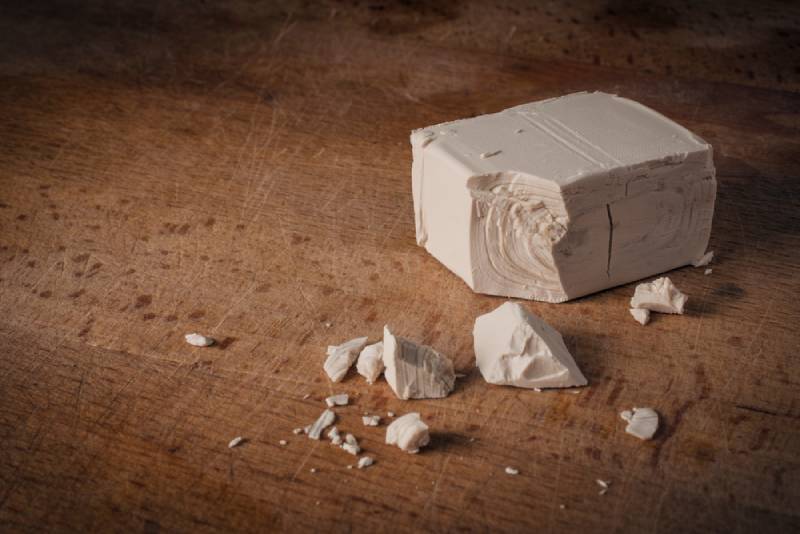
Brewer’s yeast is an ingredient that’s often added to lactation cookies and other foods that promote milk production but it can be taken as an oral supplement, too.
RELATED: Do Lactation Cookies Work? All The Benefits And Side Effects
Apart from being one of the foods that help breast milk production, brewer’s yeast has a seemingly endless list of important nutrients that your body needs to be healthy.
10. Fennel
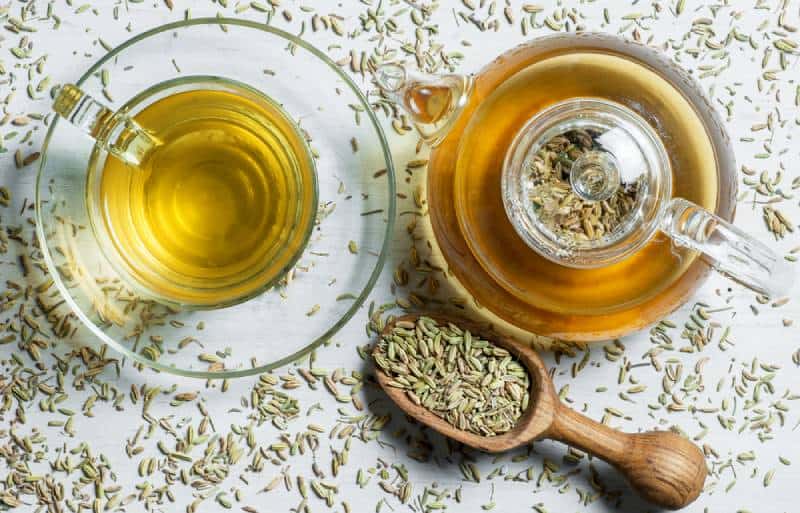
Usually found in lactation teas for breastfeeding, fennel is a plant that has been used to help moms produce enough breast milk for a very long time.
Fennel can also help you lose weight, soothe an upset tummy, and even make your breath fresher!
Although fennel seeds have been a popular remedy for women who struggle with a low milk supply, there hasn’t been any scientific evidence that points to its lactogenic properties. Still, hundreds of years of use can’t lie.
11. Sesame seeds
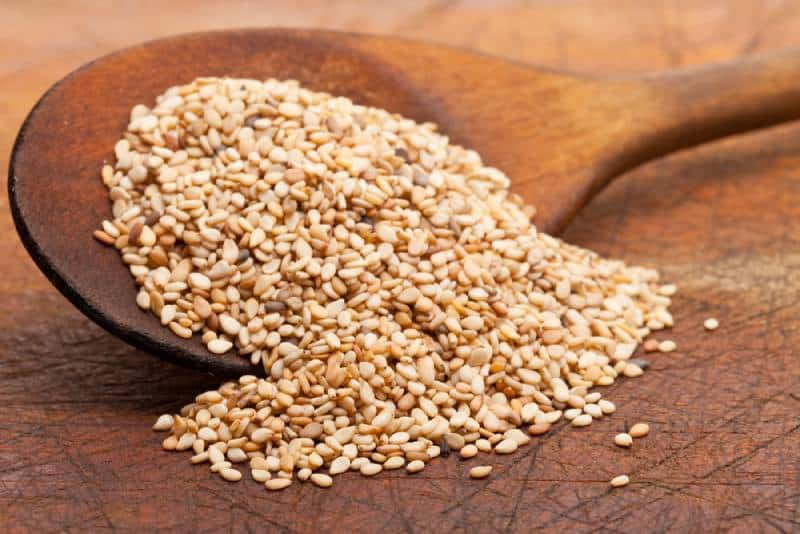
Sesame seeds are another simple food that helps to produce breast milk. I say “simple” because it’s really easy for you to include sesame seeds in your diet.
Other than eating them on their own, you can add sesame seeds to a variety of recipes for a quick boost to your milk supply.
In addition to being one of the foods to promote milk production, they are great for your skin and can lower your blood pressure.
12. Flax seed

Similar to leafy greens, flax seed also contains phytoestrogens that are important for your milk supply. I definitely recommend adding flax seeds to your diet as they are incredibly healthy, too.
For example, it lowers your risk of having a heart attack, brings down your cholesterol levels, and can even reduce your chances of having cancer.
13. Blessed thistle
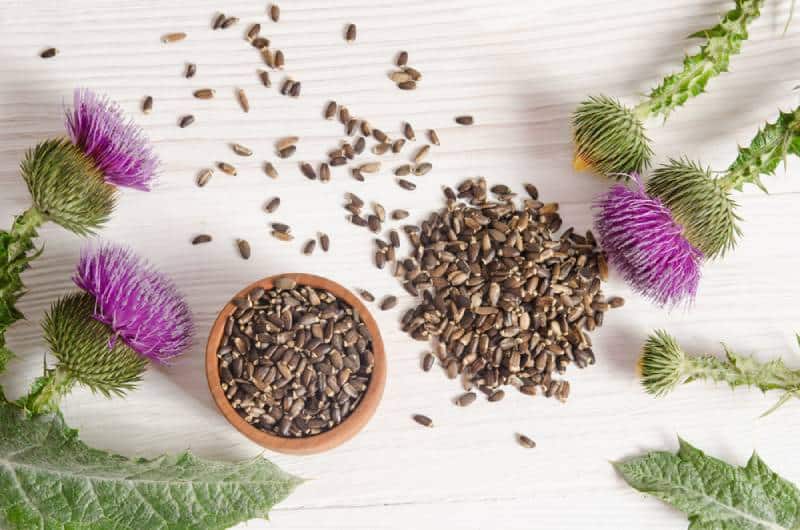
Blessed thistle is an age-old remedy and food that promotes milk production. Usually it can be found in different teas but it’s also part of various oral supplements.
Although scientific studies still haven’t proven how and if it works, it’s suspected that blessed thistle has a positive effect on the production of the hormones prolactin and oxytocin.
Foods To Avoid If You Have A Low Milk Supply
When you’re struggling with a low milk supply, you should also know which foods to avoid if you want to continue improving your breast milk production.
1. Alcohol

Excessive amounts of alcohol or drinking heavily on a daily basis can dry up your supply because alcohol can inhibit the release of an important hormone, oxytocin. Although women with a healthy supply won’t be harmed by having a beer or glass of wine, it’s best to avoid it if you have been struggling with producing enough milk for your baby.
2. Caffeine

Again, having just one cup of coffee in the morning does not mean the end of your milk supply. But ingesting too much caffeine, through coffee, soda, and other foods can have a negative effect.
Not to mention that all this caffeine will come into contact with your baby, so it’s important that you cut back as soon as possible.
If you are a heavy smoker, you should know that this could badly affect your supply, too.
3. Peppermint
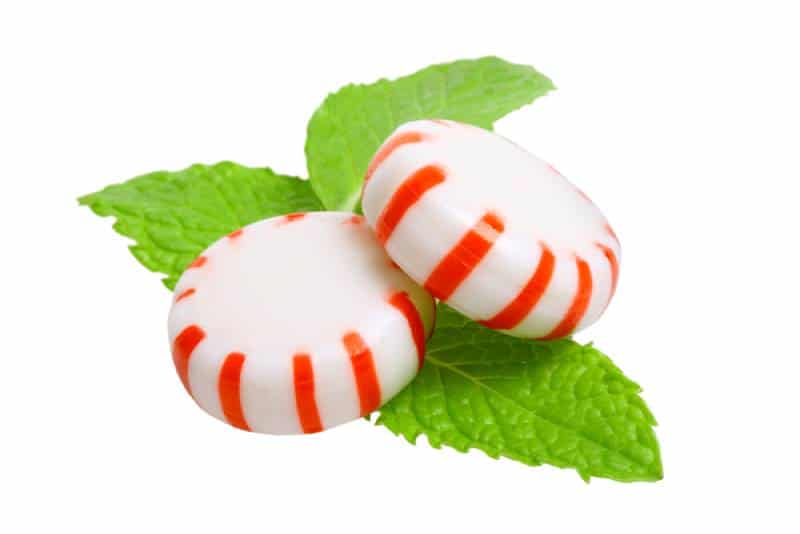
While peppermint tea isn’t likely to have a dramatic effect on your breast milk, peppermint candy has been very effective in lowering milk supply, so try to avoid it – at least until you decide that you want to stop breastfeeding. Other common herbs to avoid, apart from peppermint, include parsley and sage.
Final Thoughts
Sadly, not all moms are blessed with a perfect supply of breast milk right off the bat. Lifestyle changes, lack of sleep, and not drinking enough water can all negatively impact your supply, so before you dive into shopping for foods that promote milk production, make sure that you have eliminated all other potential causes, such as when your baby won’t latch.
If latching isn’t an issue, then you can start looking for ways of incorporating some of these foods into your breastfeeding diet. The easiest way to do it is through oral supplements or herbal teas, of course, but you can always take the other route and purchase ingredients that you can add to your meals.
You can also make smoothies which are a quick and easy way to blend your favorite foods.
Regardless of which food you choose, you can rest assured that you are enriching your diet with nutritious foods that your body will love. And your baby will have plenty of milk, too.
If you still struggle with a low supply even after giving these foods a try, don’t hesitate to talk to a lactation consultant who could give you tailored advice. Until next time.
References:
“Effects of Fenugreek, Ginger, and Turmeric Supplementation on Human Milk Volume and Nutrient Content in Breastfeeding Mothers: A Randomized Double-Blind Controlled Trial” written by Akkarach Bumrungpert, Promluck Somboonpanyakul, Patcharanee Pavadhgul, and Siriporn Thaninthranon, published in the Breastfeeding Medicine journal in November 2018. Accessed August 26, 2020.
Like this post? Please share or pin it for later. You can also stay in the loop and follow us on Facebook, Instagram and Pinterest.
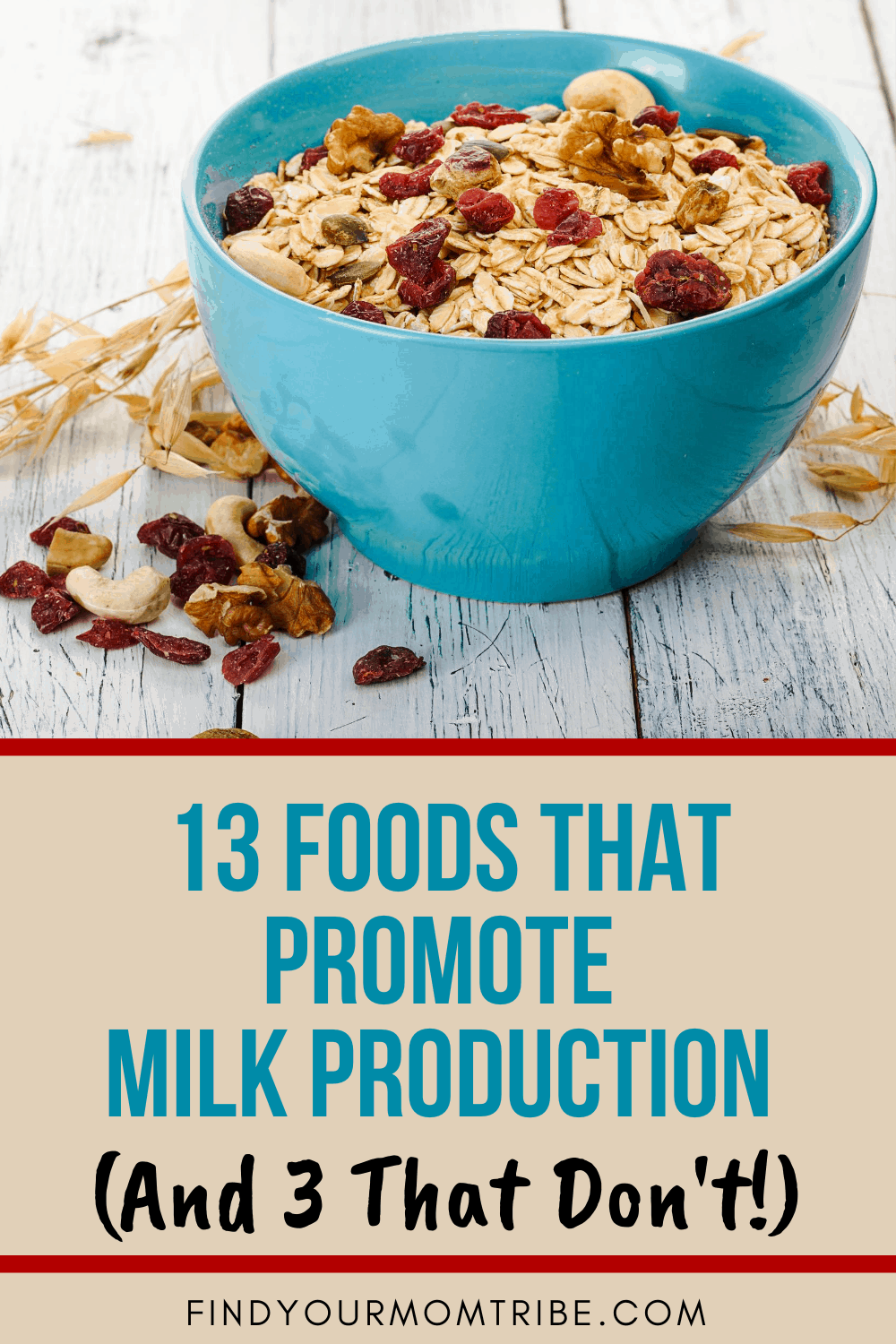
This post contains affiliate links. Please see our full disclosure for more info.

